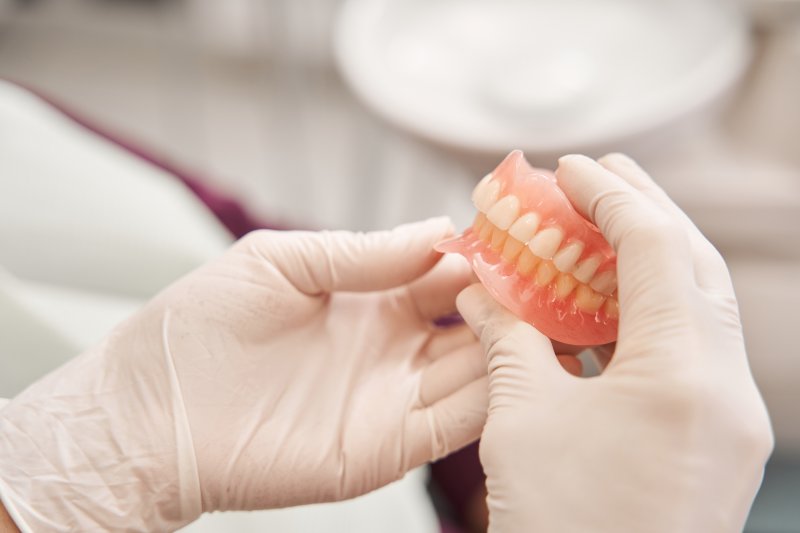
Dentures are a reliable and proven effective form of tooth replacement. Used for centuries to rebuild incomplete smiles and help individuals take back their confidence, these artificial teeth are customized to meet the needs of each person requiring restorative treatment. Because of this personalized approach and uniquely tailored fabrication process, though, the cost of these prosthetics varies from person to person. Keep reading to discover the three factors dentists take into consideration when discussing the proposed estimate for treatment.
The Type of Denture You’ll Receive
Depending on how many teeth you need to have replaced, you might require a full or partial denture. Partials help fill in the gaps along an arch, often sitting among various natural teeth. Full dentures replace incomplete arches that are without any regular pearly whites.
As a result, the creation of a full denture will usually lead to a costlier form of treatment. However, there is also the option of choosing an implant denture, which is held in place by dental implants that are placed within the jawbone. This is most certainly more expensive than traditional prosthetics because of the surgical procedure that is required and the increased longevity of these titanium posts.
Whether You Require Tooth Extraction First
When preparing for dentures, you may be required to have one or more teeth extracted before moving forward with receiving your new smile.
This invasive process is often recommended if you have teeth that are at risk of falling out because of poor oral hygiene. The timeframe and extensiveness of tooth extractions can add to the total cost of treatment. Your mouth will not only need time to heal, but you’ll receive anesthesia as well as sedation (if necessary), which most dental insurance companies do not cover.
The Kind of Material Used to Craft Your Dentures
Another considerable factor when determining the cost of dentures is the material that is used to create them.
Generally, acrylic resin is most commonly used because of its natural appearance and optimal durability; however, some dentures require that a metal framework be incorporated (i.e., partials) for proper attachment and placement. This can increase the amount you will pay.
When building artificial teeth, many lab technicians use acrylic resin or porcelain depending on preference and the number of teeth that may be missing. While acrylic tends to be cheaper, it can wear down much faster. Porcelain, though, is typically much heavier and thus costs more.
You can expect that when you meet with your dentist for your initial appointment, they will go over all the details related to your treatment. From the materials used and type of denture you need, to whether you require additional services, and the number of follow-up visits required, you will receive a complete breakdown of your expected costs.
There is a good chance your dental insurance will help cover a portion of the cost should you choose to use it, but if you’re without a private plan, you can always inquire about an in-house savings plan or flexible financing through a company like CareCredit.
About the Author
Dr. Steven Crovatto graduated from the University of North Florida with his undergraduate degree before earning his Doctor of Dental Medicine degree at the University of Florida with honors. He and his team at Crovatto & Edwards Family Dentistry provide effective tooth replacement solutions, one of which is dentures. If you need help to understand the cost associated with this type of treatment, visit our website or call (904) 272-0800.
